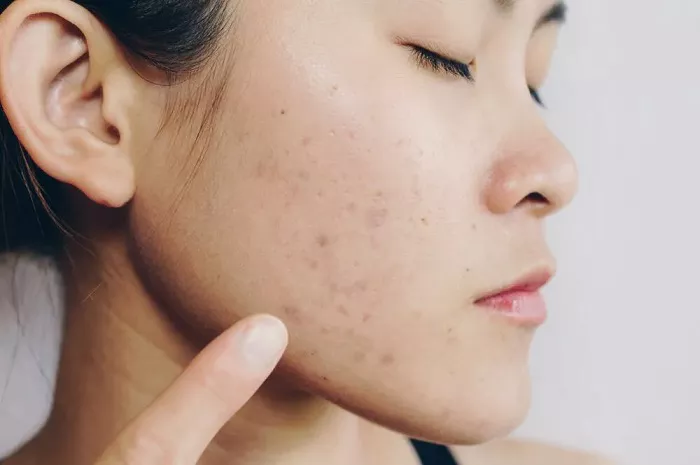Allergic conjunctivitis is a common condition that affects millions of people worldwide. It is an allergic reaction that occurs when the conjunctiva, the clear membrane that covers the white part of the eye, becomes inflamed due to exposure to allergens such as pollen, dust, or pet dander. The condition is characterized by redness, itching, tearing, and swelling of the eyelids. While allergic conjunctivitis can be uncomfortable and disruptive, it is treatable. In this article, we will discuss how to treat allergic conjunctivitis and alleviate its symptoms.
Identifying and Avoiding Allergens
The first step in treating allergic conjunctivitis is identifying the allergens that trigger the reaction. Common allergens include pollen, dust mites, pet dander, and mold. Once you have identified the allergens that trigger your symptoms, you can take steps to avoid them. For example, if you are allergic to pollen, you can stay indoors when the pollen count is high, keep windows and doors closed, and use an air purifier with a HEPA filter to remove pollen from the air. If you are allergic to dust mites, you can use special dust mite covers on your bedding and pillows, vacuum regularly, and keep humidity levels low to prevent dust mite growth. Avoiding allergens can significantly reduce the severity and frequency of allergic conjunctivitis symptoms.
Using Eye Drops
Eye drops are a common treatment for allergic conjunctivitis. They work by reducing inflammation and itching in the eyes. There are several types of eye drops available, including antihistamine, mast cell stabilizer, and combination eye drops. Antihistamine eye drops block the action of histamine, a chemical released by the body in response to allergens. Mast cell stabilizer eye drops prevent the release of histamine and other chemicals that cause inflammation. Combination eye drops contain both antihistamine and mast cell stabilizer medications. Eye drops are typically used two to four times a day, depending on the severity of symptoms. It is important to follow the instructions on the label and not to use eye drops for longer than recommended.
Taking Oral Medications
Oral medications can also be used to treat allergic conjunctivitis. Antihistamines, such as loratadine and cetirizine, are commonly used to reduce itching and sneezing associated with allergies. Decongestants, such as pseudoephedrine, can help relieve nasal congestion and reduce swelling in the eyes. However, decongestants should not be used for more than a few days, as they can cause rebound congestion and worsen symptoms. Corticosteroids, such as prednisone, can also be used to reduce inflammation, but they are typically reserved for severe cases and are not recommended for long-term use due to their potential side effects.
Applying Cold Compresses
Cold compresses can help reduce inflammation and swelling in the eyes. They work by constricting blood vessels and reducing the flow of fluids to the affected area. To use a cold compress, wrap a few ice cubes in a clean cloth and place it over your closed eyelids for a few minutes at a time. Alternatively, you can use a cold, damp washcloth or a gel-filled eye mask. Cold compresses can be used several times a day, as needed.
Maintaining Good Eye Hygiene
Maintaining good eye hygiene can help prevent and treat allergic conjunctivitis. This includes washing your hands frequently, avoiding rubbing your eyes, and avoiding sharing towels or other personal items that come into contact with your eyes. If you wear contact lenses, make sure to clean and disinfect them regularly, and avoid wearing them for longer than recommended. You may also want to consider switching to daily disposable lenses, which can reduce the risk of eye infections and allergic reactions.
Consulting with a Doctor
If your symptoms do not improve with home remedies or over-the-counter medications, or if they are severe or persistent, you should consult with a doctor. A doctor can perform an eye exam and recommend prescription medications, such as stronger antihistamine or corticosteroid eye drops. In some cases, a doctor may recommend immunotherapy, a treatment that involves gradually exposing the body to small amounts of allergens to desensitize it to them over time. Immunotherapy can be administered as allergy shots or sublingual tablets.
In conclusion, allergic conjunctivitis is a common condition that can cause discomfort and disruption to daily life. However, it is treatable with a combination of home remedies, over-the-counter medications, and prescription medications. Identifying and avoiding allergens, using eye drops, taking oral medications, applying cold compresses, maintaining good eye hygiene, and consulting with a doctor can all help treat allergic conjunctivitis and alleviate its symptoms. If you are experiencing symptoms of allergic conjunctivitis, it is important to seek treatment to prevent complications and improve your quality of life.
[inline_related_posts title=”You Might Be Interested In” title_align=”left” style=”list” number=”6″ align=”none” ids=”5203,4835,5200″ by=”categories” orderby=”rand” order=”DESC” hide_thumb=”no” thumb_right=”no” views=”no” date=”yes” grid_columns=”2″ post_type=”” tax=””]
































